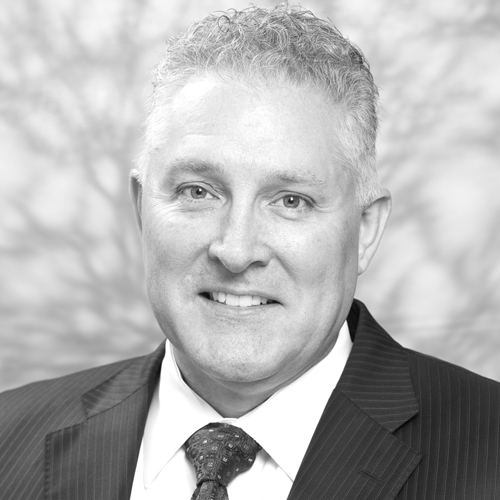Growing up in southwest Minnesota, Bill Fenske spent a lot of time in and out of hospitals. So, the fact that he has worked in them for the last twenty-five years is no accident.
“I was a healthcare user as a child due to a birth defect,” says Fenske, now CFO at Rice Memorial Hospital, a Level III trauma center in Willmar, Minnesota. “I had a lot of surgical procedures that were really scary and really painful. They were not pleasant experiences.”
His early encounters with medical care made an impression on Fenske. When combined with a lifelong penchant for numbers and statistics that he inherited from his father, a math teacher, Fenske found himself drawn to healthcare administration as a young accountant. “I got my degree in accounting and started working for a public accounting firm that audited hospitals,” he explains. “I needed to leave public accounting in order to get my MBA, so I moved into a different part of healthcare and worked at a clinic for three years while I went to night school at the University of Minnesota. After that, I started looking at CFO jobs in hospitals.”
As Fenske would soon learn, the role ended up being a perfect fit. “It wasn’t conscious, but healthcare was a part of me because of my childhood,” Fenske says. “I really believe that we all have a calling in life, and that it’s our responsibility as human beings to find that calling. I was fortunate enough to find mine early on in my career.”
“I remember from when I was a child how scary the hospital was, so it’s really important to me that I empathize with patients.”
Although he doesn’t care for patients directly, Fenske’s job—ensuring that Rice Memorial Hospital can deliver the best possible care at the lowest possible cost—impacts them profoundly. “Finance is critically important to healthcare because at the end of the day, if you don’t have the money to pay your employees and your bills, you can’t provide the service,” Fenske says. He describes part of the CFO’s job as keeping a hospital steady in perpetually choppy waters.
“One of the biggest things a CFO can do—and what I’m proud that we’ve accomplished here—is set a vision for how to enhance the financial strength and viability of the hospital by developing long-range financial plans that strengthen the organization and allow it to implement its strategy,” he says.
At Rice Memorial Hospital, the largest municipally owned hospital in Minnesota, those long-range plans have focused on improving productivity, which also allows the hospital to deliver more care with fewer resources. These initiatives have also focused on leveraging assets to lower its long-term debt-to-capital ratio and increasing its cash reserves, which Fenske has grown from a thirty-day supply of operating expenses to a nearly 125-day supply.
However, it’s not only financial strategies that have made Rice stronger; it’s also the way that Fenske has implemented them. “Most people in healthcare have numerous degrees, so we’re all inclined to think academically. I use an academic approach to teach people what our financial best practices are, utilizing examples to help them understand why they’re our best practices and why it is that we need to utilize them,” he explains. Fenske focuses heavily on making intricate financial concepts relatable.
“Something I learned many years ago is that you need to express finance in terms of what it means to individual departments by utilizing terminology and examples that are relevant to their area of focus,” he says. “That’s the biggest reason why CFOs are not successful—because they’re not able to relate to each department within the business and understand what their unique needs are.”
One aspect that’s weighing especially heavily on several departments at Rice Memorial Hospital is the Affordable Care Act and the many changes it continues to bear, including revenue-cycle management, which Fenske has approached aggressively in response to healthcare reform. “Pulling out all of the legal reimbursement that we are entitled to based on the services we provide has brought a lot of strength to our balance sheet, which will help us get through these rocky times that we have in front of us,” he says.
At the end of the day, however, what stays at the forefront for Fenske isn’t accounting strategies, it’s patients. “I remember from when I was a child how scary the hospital was, so it’s really important to me that I empathize with patients who are experiencing that feeling now when they come to our facility for services,” he says. “Whether that’s reassuring a patient that their services will be covered by insurance or helping them find another mechanism to pay for their care, I’m in a position to help them alleviate some of their worries so they can focus on getting well.”


